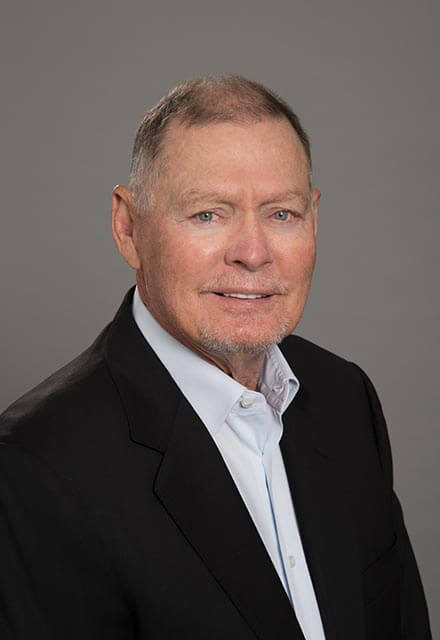
Patrick J. McEnany
Co-Founder and Chairman
Patrick J. McEnany has been Chief Executive Officer and a director of Catalyst since its formation in January 2002. In 2006 he became Chairman, President and Chief Executive Officer. From 1991 to April of 1997, Mr. McEnany was Chairman and Chief Executive Officer of Royce Laboratories, Inc. From 1997 to 1998, after the merger of Royce into Watson Pharmaceuticals, Inc., Mr. McEnany served as President of the wholly-owned Royce Laboratories subsidiary and Vice President of Corporate Development for Watson Pharmaceuticals, Inc. From 1993 through 1997, he also served as Vice Chairman and Director of the National Association of Pharmaceutical Manufacturers. He currently serves on the Board of Directors for the Jackson Memorial Hospital Foundation.
Patients and Biopharma: Trusted Partners in Fighting Rare Diseases
By Patrick J. McEnany
Co-Founder, Chairman, President and Chief Executive Officer
Catalyst Pharmaceuticals
Significant advances have been made in fighting rare diseases over the past decades. In the 10 years prior to the passage of the Orphan Drug Act in 1983, fewer than 10 drugs for rare diseases were approved by the U.S. FDA. Since then, an estimated 400 rare-disease therapies have been approved. In 2014, rare diseases comprised more than 40 percent of the 41 new drugs approved by the FDA – the highest number since the Orphan Drug Act was introduced. The FDA continues to invest heavily in research of treatment for rare diseases, spending about $14 million annually on clinical trials through the Orphan Products Grants Program.
Despite this progress, there are still no treatments for the vast proportion of the more than 7,000 known rare diseases and conditions in the US. As a result, there remains a significant medical and economic burden on more than 30 million Americans afflicted by a rare disease – about one in 10 people, many of them children. Clearly, those in the rare disease community are a largely underserved population with a huge unmet need in available therapies.
Partnerships between pharmaceutical companies and patient advocacy groups hold the key to closing the rare-disease treatment gap. According to the National Organization for Rare Disorders (NORD), more than 260 dedicated rare disease organizations comprise their patient advocacy network. Rare Disease Day, founded by the European Organization for Rare Diseases
(EURODIS) in 2008 and launched a year later by NORD, grows larger every year because of the continuing participation of a diverse group of advocates and pharma company sponsors. Their mutual commitment to improving patient care is the foundation for collaborative innovation in rare-disease education and research.
A Shared Mission
Patient advocates are passionate, knowledgeable activists who raise disease awareness among the medical community, policymakers, and government regulatory agencies. Patient advocacy played a critical role in passing the Orphan Drug Act, and continued efforts more than three decades later led to the 21st Century Cures Act in 2016. Many rare-disease advocates serve as “patient ambassadors,” connecting with other patients in the community and sharing their experiences about daily living and treating the disease. Many advocates volunteer for clinical trials of investigational therapies with potentially serious side effects, or enroll in placebo-controlled studies where they may potentially not receive active treatment. These brave individuals are willing to take tremendous risks so that others may benefit.
For their part, biopharmaceutical companies provide financial and scientific resources that drive the discovery of innovative rare-disease therapies. But their commitment goes beyond research, extending into patient advocacy. Companies regularly engage their own patient ambassadors who advise on key decisions and processes to ensure patients’ needs are incorporated during drug and clinical trial development, and that there is enough access to safe and effective medicines. There also are examples of industry-advocacy partnerships that advance research and treatment for rare diseases. In 2015, the US Hereditary Angioedema Association (HAEA) and four corporate partners pledged a total of $4.6 million to start the US HAEA Angioedema Center at UC San Diego. This first-of-its-kind institution offers comprehensive medical care to people with hereditary angioedema (HAE), a rare, debilitating swelling disorder that can affect people at any age, but usually manifests in children.
At Catalyst Pharmaceuticals, we actively seek working partnerships with rare disease organizations. For example, we gave an educational grant to Global Genes, a leading rare disease advocacy group, so they could start a web site for people with Lambert-Eaton myasthenic syndrome (LEMS), a rare neurological and neuromuscular disease that can impair patients’ quality of life, both physically and emotionally. The grant also supported local “meetup” events which offer a forum for LEMS patients, caregivers, advocates, and medical experts to exchange practical information and discuss priorities for research, education, and clinical care.
Lessons in Advocacy
Pharma industry-patient organization partnerships are expected to become even stronger in the coming years. Still, there are some challenges that are testing this relationship. Despite growing efforts by pharma to incorporate patient advocates’ voices into clinical trials and drug development, there is still the perception among some that pharma is concerned more about profits than patients. Another challenge is maintaining the delicate balance between collaboration and independence; industry must remember to always act as a resource for patient advocates without being unduly intrusive or influential. Companies can refer to industry guidelines for patient outreach and engagement, which are published in the Biotechnology Innovation Organization (BIO) Guiding Principles for Interaction with Patient Advocacy Organizations and the Pharmaceutical Research and Manufacturers of America (PhRMA) Principles on Interactions with Patient Groups.
Moving forward, there are several ways that pharma can demonstrate long-term commitment to supporting the rare disease community. Leveraging our relationships with therapeutic experts, we can serve as a conduit for information-exchange between rare-disease patients and healthcare professionals who understand the unmet medical needs and unique challenges of this community. We can arrange for care-management services to educate patients on administering medications and managing side effects. We can fund educational resources for rare-disease advocacy groups, as well as provide logistical support for fundraising and awareness-raising activities. For all of these initiatives, the key is for both stakeholder groups to openly communicate about their roles, expectations, and objectives.
Building the Relationship in an Evolving Landscape
As we set our sights on the next wave of patient advocacy, pharma companies and patient organizations have a tremendous opportunity to fulfill our joint mission of empowering patients with rare diseases. We are partners in long-term scientific investment, and the constructive relationships between us can truly improve the lives of rare-disease patients and their loved ones. As the biopharmaceutical industry continues to engage and collaborate with advocates who are leading the fight against rare diseases, it is critical to keep patient well-being at the core of our efforts.
Source: Life Science Leader

Richard Daly
President and Chief Executive Officer
Mr. Daly has been a member of the Catalyst Pharmaceutical board of directors since 2015 and continues to serve in his current capacity. Mr. Daly most recently served as President of CARsgen Therapeutics Corporation, a biopharmaceutical company focused on innovative CAR T-cell therapies for the treatment of hematologic malignancies and solid tumors. Prior to this, he served as Chief Operating Officer of BeyondSpring, Inc. from 2018 until early 2022. From 2016 until mid-2018, Mr. Daly served as Chairman and CEO of Neuralstem, Inc., a biopharmaceutical company focused on the development of central nervous system therapies. Until October 2014, Mr. Daly served as President of AstraZeneca US Diabetes, where he led all commercial and medical plans and objectives for a $1.2 billion, 3,000-employee division, including the successful launch of an orphan/rare disorder drug, Myalept, for Lipodystrophy. Mr. Daly previously served on the board of directors of Opiant Pharmaceuticals, the innovator of Narcan and Opvee (for opioid overdose) and Synergy Pharmaceuticals, a GI-focused, emerging commercial company. Mr. Daly received his Bachelor of Science in Microbiology from the University of Notre Dame in 1983 and his MBA from the Kellogg School of Management, Northwestern University in 1998.

Donald A. Denkhaus
Donald A. Denkhaus joined our Board in February 2015 and currently chairs the Audit Committee of our Board. Since 2005, Mr. Denkhaus has been Chairman and Chief Financial Officer of The Kitchen, LLC, a company providing language dubbing and subtitling services to the media and entertainment industry. From 1970 through 2002, Mr. Denkhaus, who is a retired certified public accountant, worked for Arthur Andersen LLP, a global professional services organization, where he was an audit partner for twenty-two years and held numerous leadership positions, including as head of Andersen’s South Florida audit practice and, from 1998 through 2002, as Audit Practice Partner responsible for Andersen’s offices in Florida and Puerto Rico. From 2010 to 2013, Mr. Denkhaus was Chair of Nuovo Biologics, a privately held biotech company that was developing an antiviral drug for animal use, and, from 2004 until its sale in 2009, Mr. Denkhaus served on the board of directors and as chair of the audit committee of Noven Pharmaceuticals, a publicly-traded specialty pharmaceutical company focused on women’s health and psychiatry. Mr. Denkhaus received a Master’s in Business Administration degree with a major in finance from the University of Maryland and a Bachelors of Business Administration with a major in accounting from Kent State University.

Molly Harper
Molly Harper has over 20 years of experience focusing on commercial strategy and leadership at life sciences companies of all sizes. Since October 2021, Ms. Harper has served as Chief Business Officer for Synlogic, Inc. a clinical-stage biotechnology company bringing the transformative potential of synthetic biology to medicine. Ms. Harper joined Synlogic from Relmada Therapeutics, Inc., where she was most recently Executive Vice President of Operations. Prior to Relmada she served in positions of increasing responsibility with Akcea Therapeutics, including most recently as Senior Vice President and Global Franchise General Manager, with responsibility for a six-drug portfolio, including the commercialization of two rare disease drugs. Ms. Harper was also Head of US Endocrinology in the Rare Disease division of Sanofi Genzyme, having previously served at various positions in sales and marketing with Merck & Co, equity research at UBS Warburg and strategy consulting at The Wilkerson Group/IBM.
Ms. Harper received her Bachelor of Arts from Cornell University and her Master of Business Administration from The Wharton School of the University of Pennsylvania. Ms. Harper also serves on the Board of Directors of PreciseDx, a privately held AI oncology pathology company.

Charles B. O’Keeffe
Lead Independent Director
Charles B. O’Keeffe is Professor, Pharmacology, and Epidemiology & Community Health, at the Virginia Commonwealth University School of Medicine (VCU). Mr. O’Keeffe joined VCU after retiring as President and CEO of Reckitt Benckiser Pharmaceuticals, Inc. Mr. O’Keeffe has led a distinguished career in the pharmaceutical industry and government. He served as President of Pharmaceutical Services Inc., and President of Washington Reference Laboratories. He has served in the White House for three presidents—as advisor, special assistant for international health and deputy director for international affairs in the Office of Drug Abuse Policy—and has served on US delegations to the World Health Assembly and the UN Commission on Narcotic Drugs.

Tamar Thompson
Tamar Thompson joined our Board on May 25, 2023. Ms. Thompson has served as Organization Head – Global Corporate Affairs for Alexion Pharmaceuticals/AstraZenenca Rare Disease, since 2021, when Alexion was acquired by AztraZenenca. Prior thereto, from 2019 to 2021, Ms. Thompson was Vice President, Global Corporate Affairs for Alexion Pharmaceuticals. Further, prior to joining Alexion, from February 2015 to November 2019, when she joined Alexion, Ms. Thompson served in several capacities for Bristol-Myers Squibb Company, most recently as executive director of State Government Affairs and Federal Policy. Prior to joining Bristol-Myers Squibb, Ms. Thompson was a strategic policy advisor and consultant for premiere Washington, DC based governmental affairs firms, including ADVI, Kimbell and Associates and Avalere Health. Finally, since 2020, Ms. Thompson has served as an independent director of Avidity Biosciences, Inc. (NASDAQ:RNA), where she serves on the Nominating and Governance Committee and on the Compensation Committee of that board. She also serves as Vice Chair of the board of directors of MassBio, a premier state level trade association representing the biotech sector in Massachusetts. Ms. Thompson holds an M.S. in Health Sciences with a concentration in Public Health from Trident University in Cypress, California. The Board believes that Ms. Thompson’s extensive health policy and government affairs experience, as well as her focus on rare diseases in her current position, have contributed to our Board of Directors’ conclusion that she should serve as a Director of our company.

David S. Tierney
David S. Tierney, M.D. has served as a member of our Board since October 2002 and currently chairs the Compensation Committee of our Board. Dr. Tierney currently serves as Chief Executive Officer and Director of Aramis Biosciences, a privately held clinical stage ophthalmology pharmaceutical company. From February 2020 until December 2020, Dr. Tierney served as CEO of Pharma Two B, a CNS specialty pharmaceutical company. From September 2018 until January 2020, Dr. Tierney served as President & CEO of BioPharmX Corporation, a dermatology specialty pharmaceutical company. From January 2014 until March 2018, he served as President & CEO of Icon Bioscience, Inc., a privately held ophthalmic drug delivery company. Dr. Tierney served as President and Chief Operating Officer (and a member of the board of directors) of Oceana Therapeutics, Inc., a private specialty pharmaceutical company between the organization of that company in 2008 and the sale of that company to Salix Pharmaceuticals, Ltd. in December 2011. Dr. Tierney also served as the President and CEO (and as a member of the board of directors) of Valera Pharmaceuticals, Inc. a specialty pharmaceutical company, between August 2000 and April 2007, when Valera completed a merger with Indevus Pharmaceuticals, Inc. Further, from January 2000 to August 2000, Dr. Tierney served as President of Biovail Technologies, a division of Biovail Corporation, a Canadian drug delivery company, where he was responsible for all of Biovail’s research and development, regulatory and clinical activities. Finally, from March 1997 to January 2000, Dr. Tierney was Senior Vice President of Drug Development at Roberts Pharmaceutical Corporation, where he was responsible for all research and development activities, and for drug development, medical affairs, worldwide regulatory affairs and chemical process development, as well as being part of the executive management team, and from December 1989 to March 1997, Dr. Tierney was employed by Élan Corporation, a pharmaceutical company, in a variety of management positions. Dr. Tierney is also a director of Bimeda, Inc. Dr. Tierney received his medical degree from the Royal College of Surgeons in Dublin, Ireland and was subsequently trained in internal medicine.